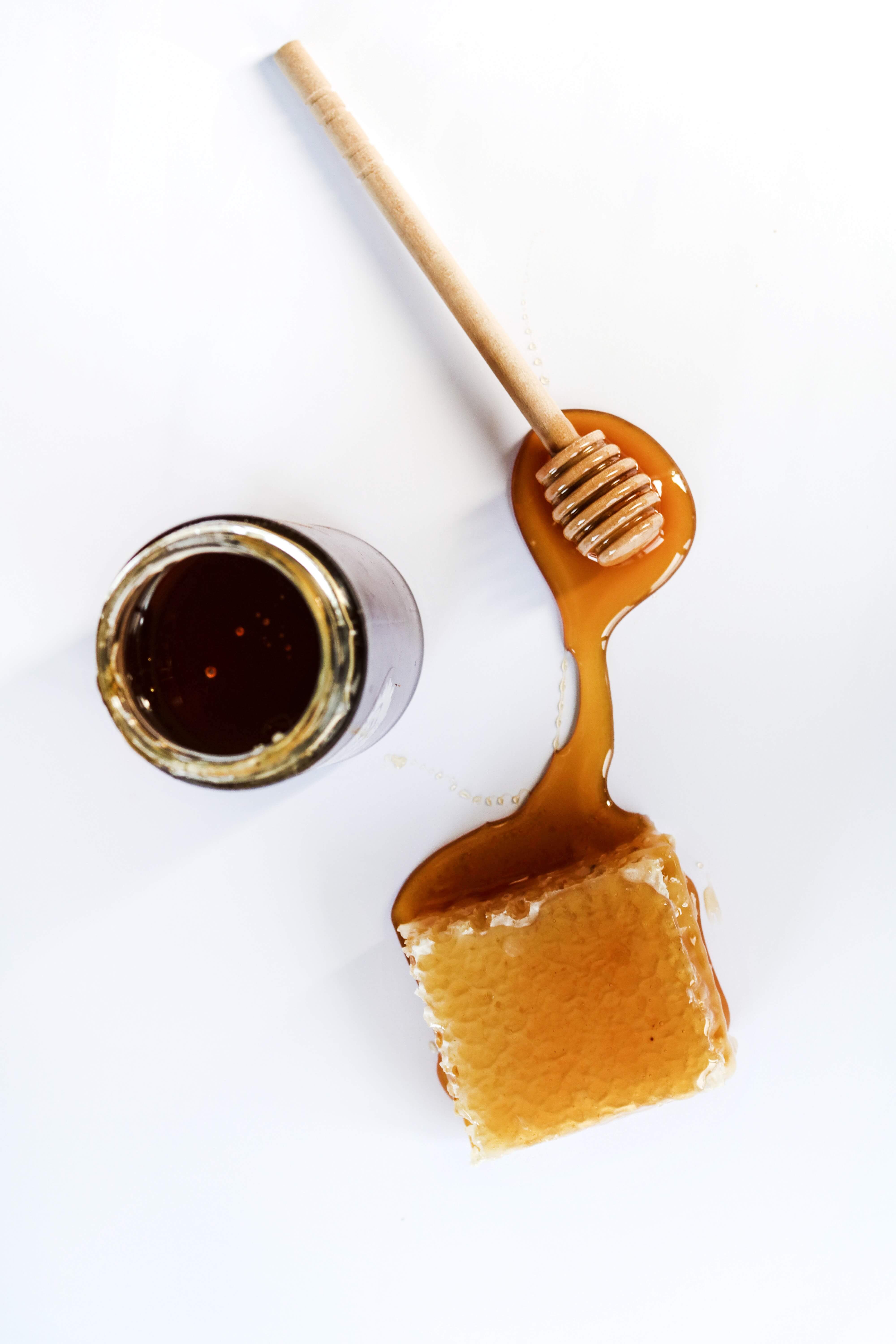“I don’t feel very much like Pooh today,” said Pooh.
“There there,” said Piglet. “I’ll bring you tea and honey until you do.”
― A.A. Milne, Winnie-the-Pooh
The Benefits of Honey in Chinese Medicine
By Elyse Tera, BA, L.Ac, (AZ), Dipl.Ac (NCCAOM)
It’s hard to believe that humans not only enjoy the culinary results of plant nectar processed through a bee’s digestive tract, but we’ve also been using this product as an essential medicine for over 5,000 years!
Archeologists from several continents have found evidence that humans have been beekeeping and honey-gathering for over 8,000 years. Stone-age rock paintings of bee-keeping have been found in Africa, Asia, Australia and Europe, and the oldest traces of actual honey substance were discovered on a 5,500-year-old ceramic jar in Tbilisi, Georgia. Medicinally, we know that Egyptians used honey for skin and eye diseases, while Sumerians used honey as a binding agent for herbal formulas. In early Islamic medicine, Mohammed recommend honey for the treatment of diarrhea, and the famous Iranian physician Avicenna wrote about using honey as a remedy for tuberculosis. Honey has a rich history of medicinal use in Chinese medicine as well, incorporating all of the above uses to this day, both topically and ingested, and contemporary medical science is seeing a boom in studies on the modern uses of honey in a diversity of healing strategies, for everything from treating wounds, burns, and dermatological diseases to allergies and inflammation.
Why has honey been such an integral part of the healing strategies of multiple cultures and societies, and why is modern science beginning to embrace its medicinal value today?
The healing properties of honey as a nutrient, a drug, and an ointment, are due to several unique factors: Honey contains some incredible biological compounds; it has an inhibitory effect on bacteria, viruses and fungi; and it has an antioxidant effect on inflammatory conditions.
Honey is arguably the only natural food that does not go bad or rancid in its natural state: It has a shelf-life of forever. This is due to its hygroscopic properties – because honey is mostly sugar, it has zero water content, so bacteria and mold cannot grow in it, which makes it a perfect medicine for wounds and skin diseases.
This quality also makes it extremely efficient as a treatment in Chinese medicine for conditions associated with “Dampness” and is the reason it is used in tuina therapy. In Chinese medicine theory, Dampness is a heavy, sometimes greasy substance that is the result of the body’s inability to metabolize water properly. Metaphorically, Dampness is persistent and insidious: When it lodges in the Stomach and Spleen it can lead to bloating, loose stools, and fatigue. In the Kidneys it can lead to edema and swelling. In the uterus can lead to painful, heavy and irregular periods. In the head, it can cause headaches, dizziness and mental-emotional symptoms like fuzzy-headedness, memory difficulties, worry and anxiety. And it can also lodge in the joints, causing swelling, stiffness, pain and inflammation.
When Dampness combines with cold, it “congeals and settles”. Cold-Damp conditions are worse in the winter when the environmental cold “invades” our bodies and causes pain as our muscles and tissues contract. When combined with heat, Dampness swells and inflames, leading to pain and redness.
Our modern, rushed “fast food” lifestyle habits make us very susceptible to Dampness, which can be caused or exacerbated by:
- Poor dietary habits like eating rushed, or while upset or worried; over-eating and emotional eating; and a diet high in dairy, fried food, fast food, and raw fruit and vegetables
- Living in damp spaces like basement apartments and homes/workspaces high in humidity and mold (humidity + air conditioning is one of the biggest causes of Cold-Damp)
- Wearing wet clothes (due to job or not changing after sweating)
- Working in cold, humid environments like refrigerated grocery sections, driving a bus in winter, or spending hours every day under an air conditioner in the summer
Dampness is considered to be the cause of many illnesses such as high cholesterol, cancer, metabolic disorders, CFS, fibromyalgia, and environmental illness. Dampness can also slow down the healing process and make it difficult to recover from illness or injury.
Other symptoms associated with Dampness include:
- Weight gain or inability to lose weight
- Heavy, achy, chronic and inflammatory joint pain and stiffness
- Menstrual irregularities and pain
- Loose stool or diarrhea, abdominal bloating, gas, and digestive discomfort
- Chronic sinusitis, runny nose or frequent colds or colds that lodge in the chest
- Mental “cloudiness” or “fuzziness”, or “brain fog”
- Obsessive thinking or being stuck in negative thoughts
If you check one or more items off of the lifestyle list, and have one or more problems from the second, it could be because you have a tendency toward Dampness.
In Chinese Medicine, honey is used because of its ability to draw Dampness out of the body, dispel Cold, and reduce Heat conditions. It does this because its hygroscopic qualities allow it to pull moisture out of the body; its antioxidant compounds reduce inflammation and relieve pain; and its antimicrobial properties dispel toxins and promote healing.
If you have conditions that those listed above, a tuina treatment using honey at Urban Wellness could be a great addition to your health care and health maintenance routine.
*Honey is not recommended for babies and children under 12 months old
Visit Elyse at Urban Wellness for one of her amazing Honey Massages! (yes we just said honey massage!)

